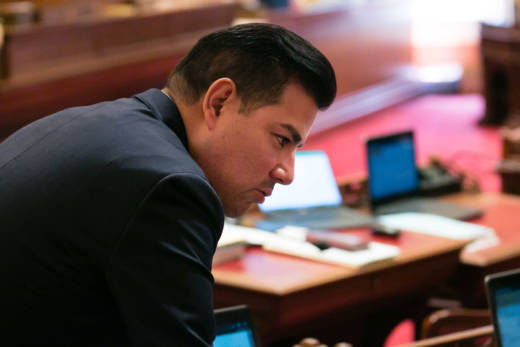The state Senate’s powerful Appropriations Committee determined the fate of hundreds of bills on Thursday during its Suspense File hearing, when lawmakers make decisions on bills with annual price tags of more than $150,000.
The opaque biannual process ended with the death of proposals that would have given teachers tax breaks, renovated buildings at the University of California and Cal State, and made it easier to pass local taxes to fund transportation.
Overall, the process that one senator dubbed "Bloody Thursday" proved to be forgiving toward the most high-profile bills making their way through the Senate.
An effort to create a single-payer health care system, others to fund and streamline affordable housing development, and a bill to reform the state's bail system all advanced to the floor.
The following five bills were among those not as fortunate. Due to Appropriations Committee rules, we'll never know which senators voted against these proposals, as the roll calls on measures that are labeled "held in committee" are not released.
Bills That Didn't Advance:
SB 305 This legislation from Sen. Nancy Skinner (D-Oakland) sought to invest $20 million in low-interest loans to upgrade unsafe live-work spaces. It was introduced in the wake of the Ghost Ship fire in Oakland, which broke out in an unpermitted living space and killed 36 people . The measure did not propose any new source of funding, which Skinner predicted could pose a challenge in the Appropriations Committee.

